Trading Day: ASX slips, Bega unveils Lion deal
Stocks slip with Virgin Money down 11pc, as Bega Cheese buys Lion Dairy and Drinks and Fantastic Furniture puts off IPO.
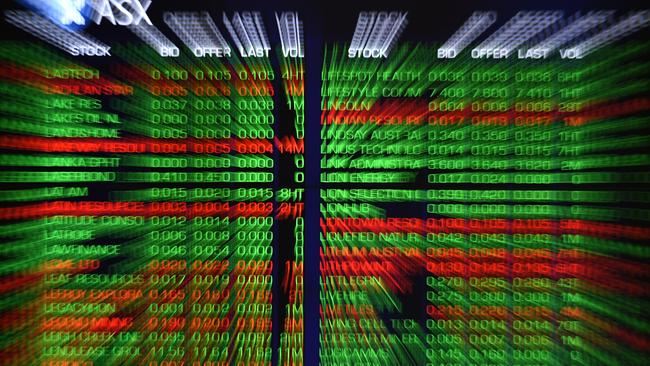
That’s all from the Trading Day blog for Thursday, November 26. Australian stocks closed in the red after a weak start, following mixed results on world markets. On Wall Street, the Dow Jones Industrial Average slipped 0.6 per cent, the S&P 500 lost 0.2 per cent and the Nasdaq gained 0.5 per cent.
Eli Greenblat 7.25pm: Possible special dividend buoys Harvey Norman
Shares in Harvey Norman rallied almost 6 per cent after an upbeat trading update and sales outlook at its annual general meeting on Wednesday indicated the retailer is in a position to benefit from a strong housing cycle and Christmas.
Such is the momentum now in the Harvey Norman business, and its retained earnings piling up, that the company could consider a special dividend or share buyback.
Citi analyst Bryan Raymond said in a report to clients that while both sales and earnings had moderated from the previous trading update, the growth run-rate at Harvey Norman remained elevated despite Melbourne temporary store closures restrictions easing.
“Harvey Norman Australia like-for-like sales grew at 34.5 per cent from July to mid-September before moderating to an implied 26 per cent over the last two months,” Mr Raymond said.
“This is a better rate of growth and a slower rate of moderation than that seen by JB Hi-Fi, which slowed from 44 per cent in July to 19 per cent in August/September. We note the timing of trading updates and category mix differs.”
On Wednesday, before its annual meeting was held, the retailer issued a trading update which revealed the strong sales momentum experienced through the COVID-19 pandemic had pushed into the new financial year as consumers filled their homes with fridges, TVs, lounges, computers and coffee machines.
Harvey Norman said pre-tax profit more than doubled between July 1 and October 31, hitting $341.1m for the four months against $131.2m for the same time last year, despite the impact of lockdowns in key markets including Victoria and New Zealand’s Auckland region. Aggregated revenue rose by 28.2 per cent between July 1 and November 21, while comparable sales for the same period increased by 27.5 per cent.
“We remain positive on the medium-term outlook given the strength of the housing cycle likely in 2021 and 2022, which will buffer the rate of earnings normalisation in fiscal 2022 and fiscal 2023,” Mr Raymond said.
The Citi analyst also said there was potential for Harvey Norman to deliver a capital return based on its performance and the strengths of the sector.
“The outsized Australian earnings in fiscal 2020 and fiscal 2021 are likely to generate significant franking credits and retained earnings. Cash levels will normalise with inventory, however low funding costs make capital returns highly accretive.
“We expect the Harvey Norman board to consider an off-market share buyback or special dividend to release some of the excess franking credits ($450m or 36c per share as at June 2020) at the first half 2021 or 2021 results.”
Mr Raymond said the outlook into Black Friday and Christmas 2020 was strong.
“Inventory shortages and reduced discounting levels year on year are the only risks to near-term sales growth. We do expect Harvey Norman to benefit from a strong housing cycle.”
Shares in Harvey Norman closed up 25c at $4.83.
Cliona O’Dowd 6.21pm: APRA takes aim at banks’ cyber security
The prudential regulator has put the nation’s banks on notice over lax cyber security practices, saying boards should apply the same urgency to cyber risks as they do to credit and liquidity threats.
As part of a new four-year cyber strategy through to 2024, APRA says it will take a more targeted approach to ensure financial institutions are complying with the prudential standard on cyber security. It will also hold boards and management accountable where there are breaches, APRA executive board member Geoff Summerhayes said in a speech to the Financial Services Assurance Forum on Thursday.
The new strategy comes as cyber risks are on the rise, in part due to the rapid transition to online and remote working arrangements due to COVID-19, Mr Summerhayes said.
6.21pm: Fed signals new guidance on asset-purchase program
Federal Reserve officials this month discussed plans to provide more information about how long they will keep purchasing Treasury and mortgage-backed securities by linking the time frame for the stimulus program to economic conditions.
Minutes of the Nov 4-5 meeting released Wednesday showed officials were prepared to roll out the revised guidance as soon as their next meeting, set for Dec. 15-16. They also discussed ways that the purchases could be altered to provide more stimulus to the economy, if needed. But they didn’t indicate any imminent changes in that direction.
Whether the Fed takes any of those additional steps next month could depend on how the economy and financial markets weather rising virus infections and the removal, at the end of the year, of emergency lending programs established by the Fed and the Treasury Department.
The Wall Street Journal
5.43pm: Listen to the latest Money Cafe podcast
Wealth editor James Kirby and InvestSMART’s Alan Kohler discuss:
- The Dow hits 30,000 but no one can keep pace with the Spanish market!
- If you were an ordinary investor this year, you’re back to scratch, which is surprising in a horrible recession
- State budgets: everyone’s going for it regardless of political persuasion
- Electric vehicles are stuck in the slow lane in Australia
- Bitcoin approaches a new record price, is this a turn for good or another bubble?
- The secrets of multi million dollar super accounts
- Some financial advice so bad James and Alan tell the listener to run away
- Understanding difference between a mortgage rate and a comparison rate
- Who pays attention to Morningstar ratings? The more boring the company, the more useful these ratings become.
Don’t forget to send your own questions to James Kirby and Alan Kohler via moneycafe@theaustralian.com.au
Elise Shaw 5.20pm: $A in narrow range, USD around 2-year low: CBA
CBA Global Markets Research notes USD remained around a two year low in a quiet Asian trading session.
“Volatility will be muted today because US markets are closed for the Thanksgiving holiday.”
AUD/USD traded in a narrow range near US73.60c.
“As expected, the Q3 20 capex data was of little significance for AUD. The volume of capex spending fell 3%/qtr. Both mining investment and non‑mining investment fell 3%.
“The fourth estimate of 2020/21 capex spending plans was $A105bn and implies a fall in nominal capex spending of 4.9% over the year.
“However, mining investment was downgraded while non‑mining investment was upgraded. Subdued oil prices and the brightening domestic economic outlook suggests the outlook for non‑mining investment may continue to outperform.”
Perry Williams 5.12pm: Origin plans hydrogen export plant in Townsville
Origin Energy plans to build a hydrogen export plant in Townsville with Japan’s Kawasaki Heavy Industries, the latest move by a major to grab a foothold in the booming industry as the world transitions to cleaner forms of energy.
A feasibility study is expected to be completed by the end of 2020 with the engineering and design component to start in 2021, Origin said at its annual investor day on Thursday.
The 300MW electrolyser will produce 36,000 tonnes a year of liquid hydrogen a year for both export and domestic supply, underlining a rush by energy producers to secure a tie-up with Asian buyers for the clean fuel.
Origin is also working on a giant green hydrogen and ammonia plant in Tasmania’s Bell Bay with first production targeted by 2025.
It’s also looking at a green hydrogen demonstration plant with Jemena in western Sydney to use across the power grid.
The Morrison government named hydrogen among technologies to be prioritised under its technology roadmap earlier this year with hydrogen to create 7600 jobs between now and 2050 and add $11bn annually to GDP. It has set out a goal for Australia to become a major global hydrogen player by 2030 and a top three exporter of the fuel to the Asian markets.
4.39pm: ASX drops 0.7pc with rising China tension
The local sharemarket has suffered its largest fall in almost a month, its first decline in four trading days, and closed at its day’s low as tensions between Australia and China rise over coal imports and AstraZeneca admitted a mistake made its developing COVID-19 vaccine look more effective in trials.
The benchmark S&P/ASX200 Index fell by 47 points, or 0.7 per cent, finishing at the day’s low of 6636.40 points, the largest single day fall since October 29.
The utilities and technology index were up 1.22 per cent and 0.97 per cent respectively while other sectors fell, with the financial index down the most by 1.42 per cent.
The market fall comes after a subdued day on Wall Street ahead of the Thanksgiving weekend, the news that the AstraZeneca COVID-19 vaccine might be less effective than initially anticipated and tensions between Australia and China rose as 53 ships containing 5.7m tonnes of Australian coal remained waiting at northern Chinese ports.
Powering the tech index was Technology One, up 5.64 per cent for the day - the best performer in the ASX200 - while Zip Co added 3.58 per cent and Kogan was up 5.2 per cent.
Trade uncertainty hit the miners with BHP ending its three day rally to finish down 0.63 per cent, while Rio Tinto dropped 1.36 per cent and Fortescue Metals Group, 0.32 per cent.
Virgin Money was the worst performer, dropping 11.54 per cent after it abandoned its 2022 guidance while Whitehaven Coal and Unibail-Rodamco-Westfield reversed gains seen this week, falling 3.55 per cent and 3.47 per cent respectively.
Origin Energy gained 1.14 per cent after it upgraded output guidance for its LNG project in Gladstone while Lynas pulled back from an initial 3 per cent gain to finish up 1.1 per cent after the company said demand for rare earth minerals in Asia had returned.
Perry Williams 3.52pm: Coal producers face ‘increasing risk’
Australian coal producers face increasing risks from more than 50 ships being stuck at Chinese ports with uncertainty whether mining giant BHP is still sending supplies to China, UBS said.
Some 53 ships containing 5.7m tonnes of Australian coal have been waiting for at least a month or more to unload their coal to Chinese customers at the northern Chinese ports of Jingtang and Caofeidian, The Australian reported on Thursday.
BHP chief commercial officer Vandita Pant held a roundtable with analysts amid speculation China may look to buy more coal from North America and Mongolia at the expense of Australia.
“It remains unclear whether BHP is currently loading ships to China and the situation appears likely to continue into 2021,” UBS analyst Glyn Lawcock said.
“To shift away from Australian coal, China may look to import a higher proportion of North American and Mongolian coal, which could see global trade flows adjust.”
Risks remain given heightened uncertainty over the situation.
“BHP said that while China is not reliant on Australian coal, there is an economic advantage from using it. Risk to Australian coal producers exists should China look to increase domestic supply, instead of sourcing imports from other nations,” UBS said.
The slowdown could be related to Chinese quotas although it was unclear how long the problem may persist, Morgan Stanley said.
“BHP has seen some ships offload recently in China, but the situation for next year remains uncertain. As such, product flows can be replaced, however, this will likely come at the cost of downgrading the coke blend (and hence efficiency) into the blast furnace in China,” Morgan Stanley said. BHP also noted that the past three years saw similar import cuts in China due to quotas already being fulfilled.”
3.21pm: Qube shareholders block remuneration report
Qube Holdings has had its remuneration report blocked at its AGM, with more than half of shareholders voting against its adoption.
Results of the meeting published to the ASX show that 52.98 per cent of shareholders and proxies voted against the adoption of the report.
In his AGM address, chairman Allan Davies noted investor dissatisfaction over the logistics company’s pay of its executives.
“The board notes there has been criticism of certain aspects of the remuneration report fromsome shareholders,” he said.
“I would like to make it clear that at all times the board has placed the interests of shareholders at the forefront of our thinking.
“However we acknowledge the critical comments received and will take on board the issues raised for consideration in this year’s remuneration report and into the future.”
3.03pm: NRW cops big first strike
Mining contractor NRW Holdings has suffered a massive first strike vote against its remuneration report and chairman at its AGM.
A total of 42.38 per cent of shareholders and proxies voted against the adoption of the 2020 remuneration report while 29.02 per cent voted against the re-election of chair Michael Arnett.
The election of new director Fiona Murdoch was carried with a 0.48 per cent vote against her.
On Wednesday, NRW Holdings announced a $100m takeover bid for solutions provider Primero Group.
It comes off the back of the acquisition of BGC Contracting earlier this year.
Speaking at the AGM, Mr Arnett said the board was undergoing a process of renewal.
“As was reported and alluded to at last year’s AGM we were undergoing a boardrenewal process with external consultants assisting us in this endeavour,” he said.
2.27pm: ASX drops in afternoon trade
The ASX is faltering in afternoon trade, falling 23 points, or 0.34 per cent to 6660.199 after three days of solid growth.
The utilities, consumer staples and tech indexes are holding out, lifting by 1.38 per cent, 0.23 per cent and 0.94 per cent respectively while other indexes tip their toes into the red, with the financial index the worst performing at -0.99 per cent.
Technology One was supporting the tech index, supplanting Harvey Norman as the best performer, lifting 5.08 per cent, while Zip Co is up 3.07 per cent.
Kogan also buoyed the index, up 5.66 per cent while Xero is up 1.96 per cent, recovering half of the value it lost on Wednesday.
Virgin Money continued its descent, shedding 11.15 per cent by 2.20pm (AEDT) while the latest capex figures seemed to impact GWA Group, dropping 2.72 per cent and Adbri, down 2.74 per cent.
1.55pm: Virgin Money dives after axing forecasts
Shares in Virgin Money have fallen 10 per cent following the UK-based bank’s move to scrap its 2022 targets, making it the worst performing stock in the ASX today.
Last night chief executive David Duffy told shareholders the company would withdraw its 2022 guidance while signalling its net interest margin would remain broadly flat, with non-interest income to remain subdued.
The company also reported a statutory loss of £141m ($256m) for the 12 months ended September 30.
At 1.45pm (AEDT) equities in Virgin Money were trading at $2.34 a share.
1.04pm: Biden win positive: Wilson
WAM Capital chair Geoff Wilson has praised the election of Joe Biden as US president, saying it provides cause for market optimism.
“We believe the election of Joe Biden is positive in terms of social, geopolitical, and, potentially, economic outcomes; it is worth noting that historically the US equity market has performed better under a Democratic president,” Mr Wilson told shareholders at the company’s AGM.
Mr Wilson said equity markets going forward would be “accommodative” given monetary policy.
“The conditions for equity markets remain highly accommodative given the sustained commitment of central banks to stimulate economies, and Australia has responded to the pandemic with strength,” he said.
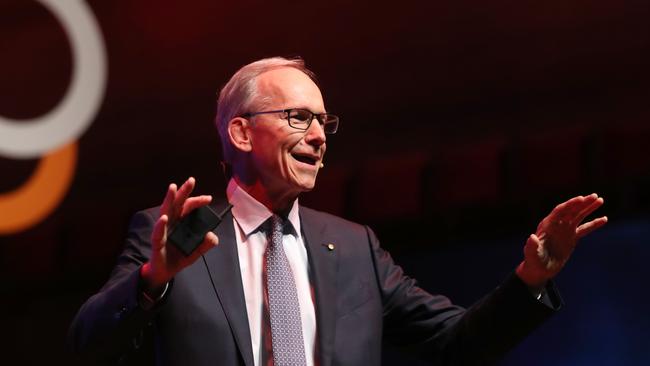
12.15pm: ASX near flat at noon after weak start
The local sharemarket was hovering just in the red at lunch, interrupting a strong week of growth that saw the ASX200 yesterday effectively erase all its 2020 losses.
At midday the ASX200 index was down by more than six points, or 0.1 per cent, at 6676.39.
Utilities and technology companies were leading the market, with their indexes up 1.31 per cent and 1.23 per cent respectively.
The tech bounce-back comes after the tech-heavy Nasdaq index defied its Dow Jones and S&P500 counterparts to rise by 0.5 per cent on Wall Street overnight.
Zip Co and Technology One were some of the strongest performing individual stocks at midday, with Zip up 3.75 per cent, erasing half of its Wednesday decline, while Technology One was up by 4.09 per cent.
Harvey Norman was the top-performing stock, lifting 5.79 per cent after it unveiled a record profit on Wednesday. But gold miners also did well after a receding gold spot price saw them sold down over the past few days.
Resolute Mining was up 3.62 per cent, Silver Lake Resources was up 3.56 per cent while Saracen Mineral was up 3.42 per cent and Westgold, 3.29 per cent.
Virgin Money was still struggling at midday, down 8.08 per cent after falling on opening while Whitehaven shed 4.52 per cent after a 10 per cent jump on Wednesday.
Lynas was up 3.84 per cent after the company flagged renewed demand for rare earths in Asia at its AGM, while Lendlease Group was down 2.44 per cent following the news that group CEO Tarun Gupta would leave the company to become Stockland CEO.
The Australian dollar was trading slightly higher at $US0.7366 cents.
11.52am: Private capex down 3pc in quarter
Private capital expenditure fell three per cent in the September quarter to $25.85bn, according to figures from the Australian Bureau of Statistics.
It represents a 13.8 per cent year-on-year decline, with buildings and structures capex falling 3.7 per cent over the quarter to $13.76bn.
Equipment, plant and machinery saw a more moderate decline of 2.2 per cent quarter to quarter, to $12.09bn.
The ABS says its estimate for 2020-21 is $104.98bn, 6.3 per cent higher than the prior estimate.
On an industry basis, electricity, gas and waste capex grew 4.6 per cent quarter to quarter, as did retail trade, while wholesale trade expanded by 10.6 per cent.
The largest decline was in transport, postal and warehousing, falling 19.1 per cent while construction declined 16.8 per cent and information media and telecommunications by 15 per cent.
All states and territories saw a seasonally adjusted decline, with Victoria unsurprisingly the largest, falling 7.7 per cent, while Queensland did the best, contracting by 0.7 per cent.
11.47am: ASX near flat after subdued start
Australian stocks were largely flat after a subdued and slightly weaker start.
Shortly after 11.30am, the ASX 200 was down 0.4 per cent at 6,680.90.
Bridget Carter 11.27am: Fantastic delays IPO plans
Fantastic Furniture has placed its initial public offering plans for 2020 on hold and may make efforts to head to the boards next year.
It is understood that the company is hoping for conditions to improve in 2021, which was one of the reasons behind the decision.
However, the move comes with a decline in the share price of listed comparable companies such as furniture and appliance retailer Harvey Norman and homewares retailer Adairs.
Market analysts say that the prospect of a COVID-19 vaccine emerging in the short term has heightened an anticipation in the market that consumers will start spending more money on travel and less on home merchandise.
Earlier, the understanding was that Fantastic Furniture was hoping to list at a market value of between $430m and $530m, equating to 11 times its net profit.
A price was set to be locked in for a listing Thursday.
Fantastic Furniture is owned by Steinhoff International subsidiary Greenlit Brands and was planning to list through advisers Macquarie Capital and Credit Suisse.
11.22am: Tokyo stocks open lower
Tokyo stocks opened lower with the market lacking fresh leads following a mixed close on Wall Street.
The benchmark Nikkei 225 index was down 0.11 per cent or 30.16 points at 26,266.70 in early trade, while the broader Topix index edged down 0.40 per cent or 7.11 points to 1,760.56.
AFP
11.15am: Bank valuations ‘stretched’
Analysts at Macquarie believe there are little upside to Australian banks in the current interest rate environment and say valuations are beginning to look “stretched.”
Operating conditions remain challenging for the sector in the analyst’s view, and are not adequately priced into the market.
“Our pre-provision profit forecast remains well below consensus, as we believe the market underestimates the impact of lower rates, competition, subdued balance sheet growth, and an unwind in abnormally strong markets income performance for ANZ and NAB in 2H20,” they wrote in a note.
The analysts believe ANZ is trading at a seven per cent premium, NAB at a 17 per cent premium, Westpac and a one per cent discount and Commonwealth Bank at a 23 per cent premium, in respect to their five-year averages.
11.04am: Gold momentum turns negative
Analysts at Macquarie say the systemic selling of gold stocks is becoming a trend as the gold price retreats towards $US1800 an ounce.
With the ASX gold index falling by 11.47 per cent in the past month, analysts believe the momentum has turned negative and may be exacerbated by a sluggish reopening of the West Australian border, prolonging skill shortages in the industry.
Noting “leadership matters”, the analysts said that Northern Star Resources Bill Beament and Saracen Mineral’s Raleigh Finlayson had not challenged WA Premier Mark McGowan on the border policy, recently pledging their support for his actions at an event.
Separately, chief global market strategist at Axi, Stephen Innes, said the news of a COVID-19 vaccine has impacted the gold price’s correlation to the S&P 500.
“The positive correlation between gold and the SPX since March flipped after Pfizer’s vaccine announcement on November 9, while negative real yields are not having a positive effect on the precious metal,” he said.
“A transition from disinflationary to inflationary support for gold could take time and ultimately leaves prices vulnerable to more profit-taking and the establishment of more shorts in the near-term.”
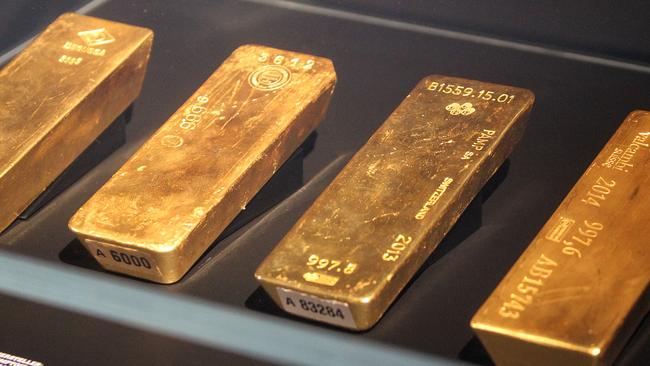
David Swan 10.47am: Telstra admits unconscionable conduct
Telstra has apologised and will pay a $50m penalty as part of a settlement with the consumer watchdog, after it admitted to selling mobile devices and plans to indigenous customers who could not afford them.
The conduct, between January 1 2016 and 27 August 2018, involved 108 customers in NT, SA and WA. Some of their debts were then sold to third-party collection agencies.
The average debt per consumer was more than $7400.
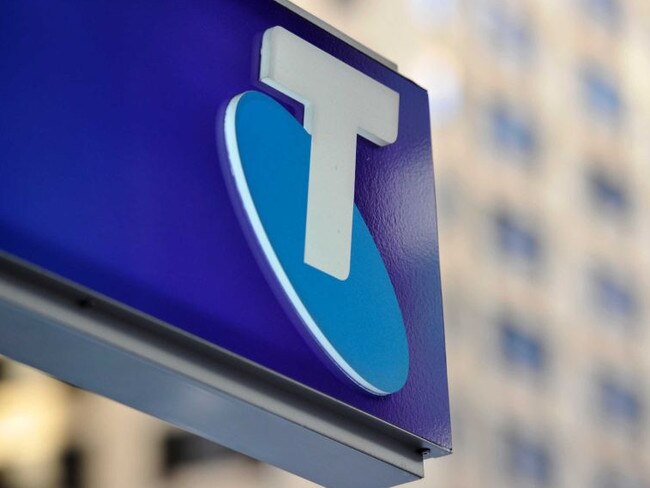
If confirmed by the Federal Court, the $50m total would be the second highest total penalties ever imposed under Australian Consumer Law.
Telstra CEO Andy Penn said that behaviour was unconscionable, and his telco had taken steps to provide full refunds with interest, waived debts and allowed most customers to keep their devices to help make things right.
10.22am: ASX slips in early trade
Australian stocks dipped at the open following a mixed session on Wall Street, with early losses for banks, miners, and energy companies.
In early trade the ASX200 slipped 10.03 points, or 0.15 per cent, to 6672.39 points.
It came after European and US stock markets posted mixed results as dealers tried to quantify the impact of a rise in coronavirus infections around the world.
Though the Nasdaq claimed a new record high, worse-than-expected US jobless claims data reinforced a generally downbeat mood on Wall Street, with the Dow losing steam and closing below 30,000 points one day after it finished above that level for the first time.
Locally, Harvey Norman opened up 2.84 per cent following a strong profit posting on Wednesday, while Virgin Money slid 5.77 per cent as the UK bank warned of “economic headwinds” impacting its results in the year ahead.
The financials index was down 1.03 per cent, with NAB falling 1.79 per cent. Unibail-Rodamco-Westfield fell 1.54 per cent after two days of solid gains.
The opening follows a mixed day for US equities, with the Dow Jones index closing around 0.7 per cent lower, while the S&P 500 index fell by 0.2 per cent.
The local market is expected to remain subdued, especially with Wall Street to close for Thanksgiving, but it is still poised for a record-breaking November.
Angelica Snowden 10.20am: Australia ‘working through’ coal holdup
The Australian government is working through issues with the Chinese government after it was revealed $700 million worth of coal is stuck on more than 50 ships off Chinese ports, Scott Morrison says.
“I have made it clear that Australia makes decisions about our policies and our National interests and no one elses… we will work through these issues with respect with the Chinese Government,” The Prime Minister earlier told Nine’s The Today Show.
“There are obviously tensions there but those tensions aren’t resolved by Australia surrendering its sovereignty,” he said.
Mr Morrison said he would work through the “process” to help an estimated 1000 people who are stranded on the ships.
“It is incredibly complicated what we are dealing with here and we have the best people working on these issues,” he said.
“In the same way, we have amazing consular people who have been working on the case of Dr Moore-Gilbert.”
Mr Morrison said he was “very clear” that he wanted to achieve a “happy coexistence and positive relationship” with China.
“They are our single largest trading partner,” he said.
“We deal with very complicated and difficult issues, which this is one of, and we are very keen to ensure we get the best outcome for Australia and in the interests of our relationship.”
Bridget Carter 10.16am: Bega Cheese buys Lion Dairy and Drinks
Bega Cheese has announced that it has acquired the Lion Dairy and Drinks business for
$534m.
It comes as Bega receives overwhelming demand for its $400m equity raising which will be launched on Thursday to fund the acquisition.
Bega is working with Kidder Williams and Bell Potter, while UBS was recently drafted in to assist on the equity raising.
Bega, a $1bn listed dairy and food producer, launched a roadshow on Wednesday with a large number of meetings held with institutional investors.
The company has been in a trading halt this week in anticipation of the $400m equity raising.
As part of the equity raising, shares are being sold at $4.60 each, consisting of a $180m placement and a $220m entitlement offer.
Lion Dairy and Drinks has been owned by Japanese firm Kirin, which was advised by Deutsche, and the latest deal will not only see the business return to Australian hands, but aid the strategy of Barry Irvin to create a major local food company selling Australian-made products to consumers.

Last year, Bega teamed up with Japanese drinks giant Asahi to buy the Lion business, but it was instead sold to China’s Mengniu for $600m after Lion initially was hoping to secure more than $1bn for the assets on offer.
However, the Lion assets were placed back on the market after the transaction was blocked by the federal government due to foreign investment concerns.
10.14am: What’s impressing analysts?
Woodside cut to neutral at Shaw
Oil Search cut to neutral at Shaw
Santos cut to neutral at Shaw
Integrated Research cut to hold at Bell Potter.
Adore Beauty introduced at overweight at Morgan Stanley\
Virgin Money cut to neutral at Macquarie
Unibail-Rodamco-Westfield rated neutral at JP Morgan
Bridget Carter 10.10am: Bega set to unveil Lion deal
Bega Cheese is set to announce on Thursday morning that it has acquired the Lion Dairy and Drinks business for a headline number of $560 million.
Stripping out certain deductions, it is understood that the price is $534m.
It comes as Bega receives overwhelming demand for its $400m equity raising which will be launched Thursday.
More to come.
10.04am: McGrath set to resume dividends
Listed real estate agency McGrath Limited says it expects increased half-year earnings and may resume paying dividends, supported by strong home sales volumes.
In a trading update released to the ASX, the company said it expected underlying EBITDA to be in the range of $6m-$6.5m for the first half of 2021, a midpoint increase of $4.7m over the previous half year result.
McGrath CEO Eddie Law said low interest rates and an improved outlook on property prices will support the continued recovery of earnings.
“Looking forward, there remains much discussion regarding the impact of house prices in the media and there is now an improved outlook on price movement from six months ago, however sale transaction volumes remain a key driver of the McGrath’s financial results,” Mr Law said.
“With the scheduled end of JobKeeper and deferred mortgages programs still yet to be determined, along with other macro factors impacting consumer confidence, there is still uncertainty as to whether the momentum evidenced in the first half of FY21 will be maintained in the second half results.”
Perry Williams 9.57am: Government monitors China coal holdup
Federal Resources Minister Keith Pitt is assessing “unofficial restrictions” on Australian coal entering China after it emerged $700m of supplies are stuck in more than 50 ships off Chinese ports.
Some 53 ships containing 5.7m tonnes of Australian coal have been waiting for at least a month or more to unload their coal to Chinese customers at the northern Chinese ports of Jingtang and Caofeidian, The Australian reported on Thursday.
Mr Pitt said he was in talks with industry over the delays.
“We are aware of longer port processing times for Australian coal, particularly at this time of year,” Mr Pitt said in a statement.
“We continue to engage with industry about the impact that unofficial restrictions are having on resources exporters.”
Up to 1000 people are stranded on the vessels awaiting clearance with 66 Australian ships overall in Chinese waters currently.
The revelation that more than three times the 21 ships previously known to be idling off the Chinese coast are now stranded may inflame a diplomatic stoush between Canberra and Xi Jinping’s administration, which appears to be punishing one of Australia’s biggest exports at the expense of its own steel making industry.
9.49am: Rare earths demand rebounding: Lynas
Lynas CEO Amanda Lacaze says demand for rare earths is returning to normal in Asia, despite the impacts of COVID-19.
“Despite the uncertainty introduced by the global pandemic, underlying growth drivers remain unchanged and we are pleased that demand appears to be returning to pre-COVID levels,” she told shareholders at the company’s AGM.
“In particular, the demand from our Japanese customers is strong and demand is strong inside China.
“Of course, demand varies by segment – we see strong demand for magnetic materials with positive pricing trends.
“However, demand for catalytic materials remains subdued – driven by lower sales of ICE vehicles and lower demand for fuels in all forms of transport.”
9.40am: Qube upbeat about first quarter
Qube Holdings chairman Allan Davies says the logistics company has been trading ahead of internal expectations in the first quarter, with volumes across containers, vehicles and bulk commodities “generally solid”.
Mr Davies said the company expects to generate “reasonable growth” in full year underlying net profit after tax and amortisation assuming “no material deterioration in the current economic condition or volumes.”
However, the company said underlying half-year results are expected to be below the comparable half year results in 2020.
9.30am: Galaxy completes first stage of raising
Galaxy Resources has raised $124m of its $161m equity raising announced earlier in the week, with a further offer to open next week.
The raising offered shares at $1.70 per new share, a 15 per cent discount on the last trading price of $2.00.
The lithium miner said a fully underwritten retail entitlement offer to raise a further $37m will open on December 1.
Galaxy Resources CEO Simon Hay said the proceeds would be used for project development.
“Securing these funds is an important milestone for Galaxy as we seek to commit to execute and develop Sal de Vida into a successful, lowest quartile cost lithium brine operation,” he said.
“The equity financing proceeds will also be used to accelerate James Bay to a construction ready status which Galaxy believes is timely given the project’s high-grade nature and location, positioning Galaxy to take advantage of the expected growth in electric vehicle demand in Europe and North America.”
9.16am: China, populism a threat to investors: Evolution
Executive chairman of Evolution Mining, Jake Klein, has warned shareholders that the growing global influence of China and resurgent nationalism and populism pose a threat to “every investor.”
“The cooperative globalisation phase that has been present since the end of the Cold War appears over and the re-emergence of populism and nationalism should concern every investor,” Mr Klein told shareholders of the gold miner at its AGM.
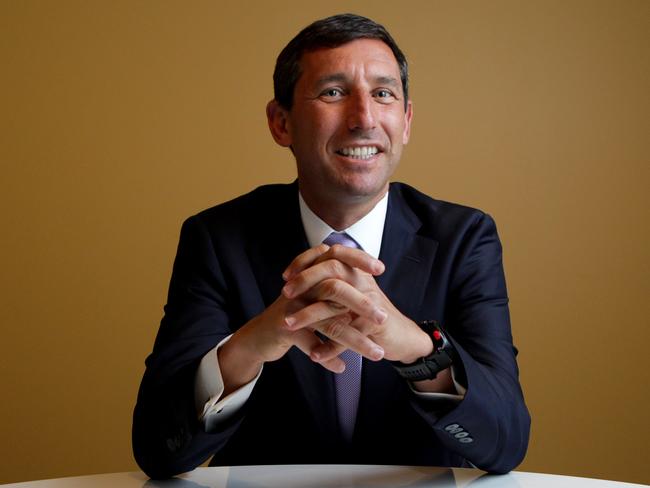
“Today, an investor must consider not only the discontent and instability that has been exacerbated by the COVID-19 pandemic in many developing countries, but also the growing influence of China, both at a government level and as a competitor at a corporate level, particularly in Africa.
“All seasoned participants in this sector have seen multiple examples of massive shareholder value destruction because of unanticipated government intervention.
“Avoiding these risks is at the core of Evolution’s decision to exclusively focus on the tier one jurisdictions of Australia and Canada where the rule of law can be relied on.”
9.04am: Stockland names new CEO
Property development company Stockland has announced the appointment of Tarun Gupta as the company’s next managing director and CEO.
Mr Gupta is set to commence his role on June 1, 2021. Current CEO and managing director Mark Steinert will remain in the role until that date.

Mr Gupta comes from Lendlease, where he worked in a variety of roles across his 26 years at the company, most recently serving as the group chief financial officer.
Stockland chairman Tom Pockett said the Stockland board was delighted by Mr Gupta’s appointment.
“Tarun has deep commercial experience and a proven track record in leading and managing large property operations,” he said. “We know that he is highly regarded in the industry and has a strong reputation among property investors.”
8.54am: Elanor in $80m Brisbane deal
Listed real estate fund manager Elanor Investors Group has set up a new managed fund to buy a commercial office and healthcare property in Brisbane’s Burke Street for $80.2 million.
The 1.5 hectare site has two buildings with long-term tenants and a 7.2 year weighted average lease expiry.
The acquisition follows the group’s divestment of Auburn Central Shopping Centre in western Sydney for $129.5m.
8.48am: WiseTech reaffirms guidance
WiseTech Global reiterated its fiscal 2021 revenue and earnings guidance while warning the longer-term impacts of the coronavirus pandemic remain unpredictable.
The logistics software provider said business had been recovering since June, with momentum improving and continuing into fiscal 2021. User numbers of its showpiece CargoWise platform were close to pre-pandemic levels by late July, and have since been trending upwards and above historical averages, chief executive Richard White said.
WiseTech said it remained cautious and was sticking by the guidance given in August with its fiscal 2020 results.
It expects full-year revenue to grow between 9pc and 19pc to between $470 million and $510 million. It forecasts earnings before interest, tax, depreciation and amortisation to rise by between 22 per cent and 42 per cent, to between $155 million and $180 million.
Dow Jones Newswires
8.46am: Energy sector downgraded: Shaw
Analysts at Shaw have downgraded their view of the energy sector to equal weight and have cut their view on Woodside, Oil Search and Santos to neutral from buy, citing concerns about the latest Brent oil futures curve limiting the growth prospects of the sector.
The analysts say that although catalysts are limited for those three companies, they have maintained a buy rating on Beach Energy as they believe the company would be able to benefit from the sales of distressed assets and “gas opportunities” in Western Australia.
8.37am: Unibail bond placement oversubscribed
Shopping centre landlord Unibail-Rodamco-Westfield has announced a successful €2bn ($3.24bn) two-tranche bond placement that was more than three times oversubscribed, attracting more than €6.5bn ($10.51bn) in demand.
The placement consists of a €1bn tranche with a six year and five months maturity and a 0.625 per cent fixed coupon and one €1bn tranch with an 11-year maturity and a 1.375 per cent coupon.
The company has also launched a simultaneous tender offer of up to €1bn across five outstanding bonds with a total principal amount of €2.8bn.
“The net proceeds from this issuance will be used for general corporate purposes, including the funding of the concurrent tender offer and the refinancing of upcoming bond maturities,” the company said in a statement to the market.
Cameron Stewart 8.30am: James Wolfensohn dead at 86
James Wolfensohn, one of the most prominent Australian business figures of his generation, has died in New York at the age of 86.
The Sydney-born Mr Wolfensohn, who was president of the World Bank from 1995 to 2005, grew up in a middle class family in Australia but spent most of his life in the US.
He started a powerful investment house in New York before being appointed by Democrat president Bill Clinton to run the World Bank and then by Republican president George W Bush in 2005 to be special envoy for Gaza.
In 2017 he was awarded the prestigious Carnegie Medal of Philanthropy for a lifetime of philanthropic work.
Alongside his business career, Mr Wolfensohn was a committed philanthropist. He raised $60 million to rebuild New York’s iconic Carnegie Hall and in 2006 he founded the Wolfensohn Center for Development at the Washington think-tank, the Brookings Institute which focused on anti-poverty programs and global economic governance.
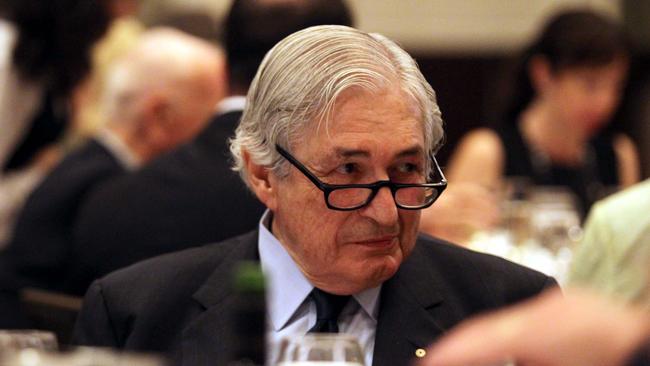
8.26am: ASX tipped to open largely flat
The ASX is set to open steady, or even a little lower, as world markets paused amid mixed US economic data, which contributed to a downbeat mood after the Dow yesterday topped 30,000 for the first time.
At around 8am (AEDT) the SPI futures index was down four points, or 0.1 per cent.
Yesterday, Australia’s S&P/ASX 200 share index finished up 39 points or 0.6pc at 6683.3 - its best daily close since February.
The Australian dollar is higher at US73.65.
Spot iron ore was 0.3 per cent higher at $US128.15 a tonne.
8.15am: Origin reaffirms guidance
Origin Energy has reconfirmed its energy markets guidance for the current financial year in an investor presentation released to the ASX, saying it expects to achieve an underlying EBITDA of $1.15bn-$1.3bn.
It also predicts it will pay a dividend of between 30-50 per cent of its free cash flow “based on greatest need and highest risk adjusted return”, with a predicted free cash flow yield between 12 and 15 per cent.
Integrated gas production guidance has been lifted to 675-705 petajoules from 650-680 petajoules, with a distribution break even of US$25-29 per barrel of oil equivalent compared to prior guidance of US$27-31 due to an anticipated increase in demand for gas in the Asia Pacific market.
8.07am: Wall Street mixed as Dow slips
The Dow Jones Industrial retreated, sliding back below 30,000 after mixed economic data.
The blue-chip index fell around 174 points, or 0.6 per cent, to 29872, a day after breaching the 30,000 milestone for the first time. The S&P 500 edged down 0.2 per cent and the Nasdaq Composite finished the day up 0.5 per cent.
The move marked a pause in a rally fuelled by hopes for Covid-19 vaccines and easing concerns around the US presidential transition. President-elect Joe Biden’s pick of former Federal Reserve head Janet Yellen for Treasury secretary has also increased hopes of sizeable stimulus measures.
Countering that optimism are concerns that the coronavirus pandemic continues to threaten households and raises the prospect of further restrictions. As of Tuesday, there were 88,080 hospitalised patients in the US, a record high for a 15th consecutive day, according to the Covid Tracking Project.
“The market is trying to balance itself between the short-term outlook of a winter wave of Covid cases and the more positive medium-term outlook, thanks to the vaccine and the recovery that will follow,” said Seema Shah, chief strategist at Principal Global Investors.
The declines followed a slate of mixed readings on the US economic recovery, with some data releases brought forward due to Thursday’s Thanksgiving holiday. US markets are shut Thursday (US time) and close early on Friday.
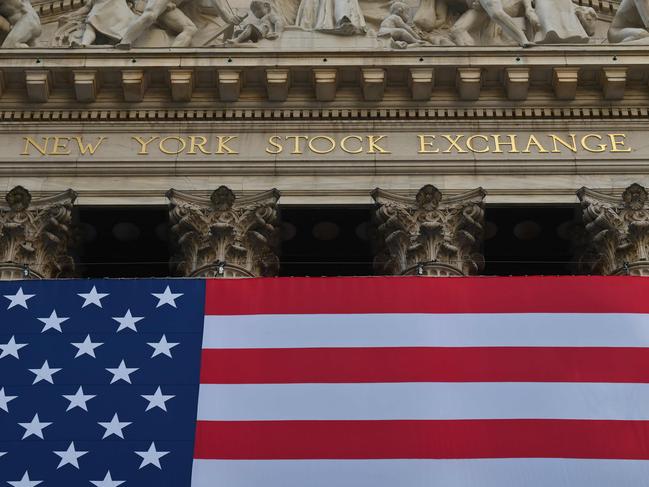
Weekly figures from the Labor Department showed jobless claims rose for a second consecutive week, a sign that resurging Covid-19 cases are taking a toll on the labour market. Meanwhile, durable goods orders rose by more than forecast.
Consumer spending rose in October for the sixth consecutive month, according to the Commerce Department, though the gain was the smallest over that period. Household income fell 0.7 per cent, in part due to dwindling support from government aid efforts.
In commodities, Brent crude, the international benchmark for oil, rose 1.1 per cent to $US48.27 a barrel. Gold prices ticked 0.2 per cent higher to $US1,808.50 a troy ounce.
Overseas, the pan-European Stoxx Europe 600 fell 0.1 per cent, led by auto makers and energy companies.
Dow Jones Newswires
7.35am: Gentrack posts loss after impairments
Software firm Gentrack Group has reported a $NZ31.7m net loss for the full year.
Revenue was down 10 per cent to $NZ100.5m. Underlying EBITDA wad down 51 per cent to $NZ12.1m.
Gentrack, which supplies software to utilities and airports, will not pay a dividend.
It said the statutory loss included an impairment charge of $US34.5m primarily related to its Blip and utilities businesses.
CEO Gary Miles said: “The results reflect a tough year for our utilities and airports customers.
“Pleasingly the revenue mix and shift in annual recurring revenues is positive. We see opportunities in our markets and our strong net cash position sets us up to accelerate our
technology investment and lead the industry as it transforms to the cloud and clean technologies.”
7.05am: Oil futures at over 8-month high
Oil futures extended gains, with the U.S. and global benchmarks ending at their highest level since March 5 for a second straight session as investors remained cheered by optimism over progress toward COVID-19 vaccines and data that showed a fall in U.S. crude inventories last week.
West Texas Intermediate crude for January delivery rose 80 cents, or 1.8 per cent, to end at $US45.71 a barrel on the New York Mercantile Exchange.
The global benchmark, January Brent crude advanced 75 cents per barrel, or 1.6 per cent, to finish at $US48.61 a barrel on ICE Futures Europe.
Dow Jones
6.22am: Salesforce in talks to buy Slack
Salesforce.com is in advanced talks to buy Slack Technologies, according to people familiar with the matter, a deal that would unite a giant in business software with a buzzy newcomer on a mission to replace office email.
The companies could reach a deal within days, some of the people said. Slack, with a market value of more than $US17 billion, would be Salesforce’s largest acquisition ever. There’s no guarantee the companies will reach an agreement.
Salesforce, which has a market value of some $US230 billion, is the world’s biggest seller of software that companies use to manage their customer relationships. Started 21 years ago and run by co-founder Marc Benioff, it was a pioneer in providing software via the cloud through a subscription rather than a costly upfront installation. Mr. Benioff, chairman and chief executive, is one of Silicon Valley’s highest-profile executives, a status he recently burnished with the purchase of Time magazine.
The company has made a string of acquisitions to boost its reach, including a $US15 billion-plus takeover of data-analytics platform Tableau Software last year and a smaller deal this year for cloud-software provider Vlocity Inc. It has also eyed social media, losing out on a deal for LinkedIn in 2016 and holding talks to buy Twitter Inc. in 2016 that were dropped after shareholders balked at the idea.
San Francisco-based Slack makes instant-messaging software that it pitches as a solution to what it says is cluttered and intrusive office email. It launched in 2009 as a gaming company called Tiny Speck, but pivoted to the messaging app it had developed for internal use. It is also trying to expand to become a platform that companies can use to tie other pieces of software together.
Dow Jones
6.02am: Fed discussed asset purchase program
Federal Reserve officials resumed discussions at their policy meeting earlier this month about their purchases of Treasury and mortgage-backed securities, according to minutes of the meeting.
Since June, the Fed has been buying $US80 billion per month in Treasurys and $US40 billion in mortgage securities, net of redemptions. Officials have considered ways they could provide more support for the economy by adjusting those purchases or providing more guidance about how long they might continue to buy assets.
“We may reach a view at some point that we need to do more on that front, “ said Fed Chairman Jerome Powell at a November 5 news conference. “We understand that there are a number of parameters that we have where we can shift the composition, the duration, the size, the life cycle of the program.”
But he indicated comfort for now with the current program, which he described repeatedly as large.
Fed officials are navigating an especially uncertain outlook that is clouded by the risk that an economic recovery decelerates in the winter months amid rising virus cases. At the same time, positive developments about vaccine trials raises the prospect of a stronger rebound later in 2021.
The Fed’s next scheduled policy meeting is December 15-16.
Dow Jones
5.20am: US stocks pause after milestone
The Dow Jones Industrial retreated, sliding back below 30,000 after mixed economic data.
In US lunchtime trade, The blue-chip index fell around 170 points, or 0.6 per cent, to 29,876, a day after breaching the 30,000 milestone for the first time. The S&P 500 lost 0.2 per cent and the Nasdaq Composite swung between small gains and losses and was recently up 0.4 per cent.
The moves marked a pause in a rally fuelled by hopes for COVID-19 vaccines and easing concerns around the US presidential transition. President-elect Joe Biden’s pick of former Federal Reserve head Janet Yellen for Treasury secretary has also increased hopes of sizeable stimulus measures.
Countering that optimism are concerns that the coronavirus pandemic continues to threaten households and raises the prospect of further restrictions. As of Tuesday, there were 88,080 hospitalised patients in the US, a record high for a 15th consecutive day, according to the Covid Tracking Project.
“The market is trying to balance itself between the short-term outlook of a winter wave of Covid cases and the more positive medium-term outlook, thanks to the vaccine and the recovery that will follow,” said Seema Shah, chief strategist at Principal Global Investors.
The declines followed a slate of mixed readings on the US economic recovery, with some data releases brought forward due to Thursday’s Thanksgiving holiday. US markets are shut Thursday (US time) and close early on Friday.
Weekly figures from the Labor Department showed jobless claims rose for a second consecutive week, a sign that resurging COVID-19 cases are taking a toll on the labour market. Meanwhile, durable goods orders rose by more than forecast.
Consumer spending rose in October for the sixth consecutive month, according to the Commerce Department, though the gain was the smallest over that period. Household income fell 0.7 per cent, in part due to dwindling support from government aid efforts.
In commodities, Brent crude, the international benchmark for oil, rose 1.1 per cent to $US48.27 a barrel. Gold prices ticked 0.2 per cent higher to $US1,808.50 a troy ounce.
Overseas, the pan-European Stoxx Europe 600 fell 0.1 per cent, led by automakers and energy companies. Asian benchmarks were mixed, with the Japanese Nikkei 225 ending the day 0.5 per cent higher, while China’s Shanghai Composite fell 1.2 per cent.
Dow Jones Newswires
5.15am: Exxon’s pessimistic outlook for oil prices
Exxon Mobil Corp. has lowered its outlook on oil prices for much of the next decade, according to internal company documents reviewed by The Wall Street Journal.
As part of an internal financial-planning process conducted this fall, Exxon cut its expectations for future oil prices for each of the next seven years by 11 per cent to 17 per cent, according to the documents.
The sizeable reduction suggests the Texas oil giant expects the fallout from the coronavirus pandemic to linger for much of the next decade. The fossil-fuel industry is also contending with increased competition from renewable-energy sources and electric vehicles, as well as the prospect of increased climate-change regulation around the world.
Unlike some rivals, Exxon doesn’t publish its internal views on commodity prices, which it views as proprietary. Some investors have pressured Exxon to release them, arguing that the forecasts are critical to understanding a company’s plans and the future value of its assets.
In 2019, Exxon had internally forecast that Brent oil prices, the global benchmark, would average around $US62 a barrel for the next five years before increasing to $US72 a barrel in 2026 and 2027, the documents state.
This summer, the company lowered that forecast to between $US50 and $US55 a barrel for the next five years, before eventually topping out at $US60 a barrel in 2026 and 2027, according to the documents, which were dated September.
Brent oil is currently trading for about $US47 a barrel after a jump in prices this week that has brought prices back to their highest levels since spring.
Dow Jones
5.10am: Rising infections, jobs data brake markets
European and US stock markets posted mixed results as dealers tried to quantify the impact of a rise in coronavirus infections around the world.
Worse-than-expected US jobless claims data reinforced a generally downbeat mood. London’s benchmark FTSE 100 index remained in the red to the end with a decline of 0.6 per cent.
Frankfurt was essentially unchanged, but Paris closed with a slight gain following a mixed session in Asia, while the Dow Jones index in New York was off by 0.7 per cent in midday trades.
Wall Street had soared on Tuesday, with the Dow closing above 30,000 points for the first time ever, but it was back below that level on Wednesday.
US markets will be closed Thursday for the Thanksgiving holiday. Oil prices continued their ascent towards $US50 per barrel on vaccine hopes, while the dollar slipped against the euro and yen.
Bitcoin traded for $US19,030, approaching its record peak of $19,511. “European markets are largely treading water ... with recent vaccine-led gains starting to fade once again,” said analyst Joshua Mahony at trading firm IG.
Investors were set to read a trifecta of US economic data ahead of the Thanksgiving break, namely US Federal Reserve minutes, the disappointing jobless claims and the latest estimate of third-quarter economic growth.
New applications for jobless aid marked their second straight weekly increase at 778,000 which fuelled concerns that a renewed economic downturn is beginning.
In Asia, investors had rushed out of the blocks early on Wednesday following the blockbuster US performance a day before, as vaccine successes and easing political uncertainty boosted investor confidence in the economic recovery.
AFP
5.00am: US spending, incomes stall
The expiration of a government assistance program sent US incomes slumping in October as spending also slowed, data showed, demonstrating the headwinds facing the economy as COVID-19 cases surge.
Analysts warned the data from the Commerce Department was a preview of what was to come for American consumers if Washington doesn’t agree to another spending package to help the unemployed and small businesses weather the spreading pandemic.
“In the absence of a fiscal stimulus package, slower employment gains will be insufficient to prevent incomes from falling below pre-Covid levels,” Gregory Daco of Oxford Economics said.
Personal incomes fell by 0.7 in October, more than expected and amounting to a loss of $US130.1 billion.
AFP
4.58am: Simon & Schuster sale to create books giant
US media group ViacomCBS said it is selling Simon & Schuster to rival publisher Penguin Random House for $US2.18 billion in cash, creating a giant in the world of books.
Big-name writers on the roster at Simon & Schuster include Stephen King and Doris Kearns Goodwin, while Barack and Michelle Obama and John Grisham have books published by Penguin Random House, a subsidiary of the German company Bertelsmann.
“This transaction is the outcome of a highly competitive auction that attracted interest from buyers around the world, reflecting Simon & Schuster’s position as one of the world’s best known publishing brands,” ViacomCBS said in a statement.
That media conglomerate -- which owns TV networks such as CBS, MTV, Comedy Central, Nickelodeon and Showtime, as well as the film studios Paramount and Miramax -- no longer considered its publishing unit a priority and had been trying for months to sell it.
ViacomCBS said it will use the proceeds to invest in strategic growth priorities including streaming, and to pay dividends and reduce its debt.
The deal is expected to close in 2021 but still needs approval from US competition regulators.
If the sale goes through, Simon & Schuster will still be a separate publishing unit under the Penguin Random House umbrella and Jonathan Karp will continue to be its CEO, ViacomCBS said.
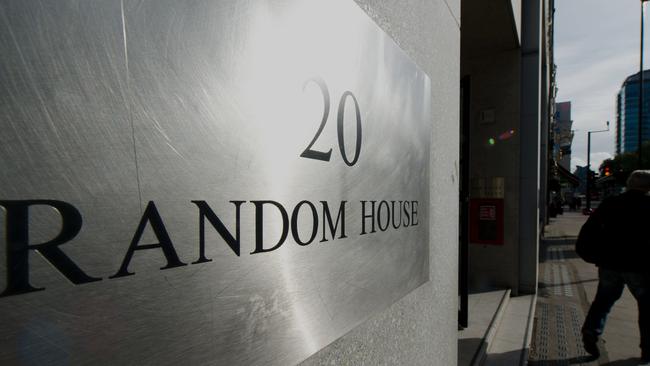
AFP
4.55am: Defence boosts US durable good orders
An uptick in defence orders accounted for a larger-than-expected bounce in durable goods orders in October, according to US data.
The Commerce Department report put the increase in orders for big-ticket items such as industrial equipment and automobiles at 1.3 per cent to $US240.8 billion, above the 0.8 per cent increase projected by analysts.
The agency also lifted the estimate of September durable goods orders by 0.2 per cent to 2.1 per cent.
But analysts cautioned that the manufacturing sector behind durable goods was vulnerable in the upcoming period because of the latest surge in coronavirus cases could prompt some companies to defer or cancel orders.
AFP
4.51am: US jobless claims rise again
New applications for jobless aid in the United States saw their second back-to-back weekly increase, according to government data released Wednesday, raising concerns that a renewed economic downturn is beginning.
The Labor Department said 778,000 initial claims were filed in the week ended November 25, more than analysts had forecast and an increase of 30,000 from the previous week’s upwardly revised figure.
The increase was the first consecutive one since July and brought claims to their highest level in more than a month, as the world’s largest economy grapples with a nationwide surge in COVID-19 cases.
Another 311,675 people, not seasonally adjusted, filed claims under a program for workers not normally eligible -- a program set to expire at the year’s end unless Congress, which is deadlocked on passing more stimulus for the economy, decides to renew it.
AFP
4.47am: Yellen ‘good news for world economy’
The prospect of former Federal Reserve boss Janet Yellen becoming the next US Treasury Secretary is “good news for the US and the world economy”, ECB vice president Luis de Guindos said.
Yellen, who would be the first woman in the job, would face the daunting task of steering the world’s largest economy through the COVID-19 crisis and is seen by experts as favourable to more government spending.
The ECB itself has unleashed unprecedented stimulus to shore up the eurozone economy and regularly urges governments to support its efforts through more spending.
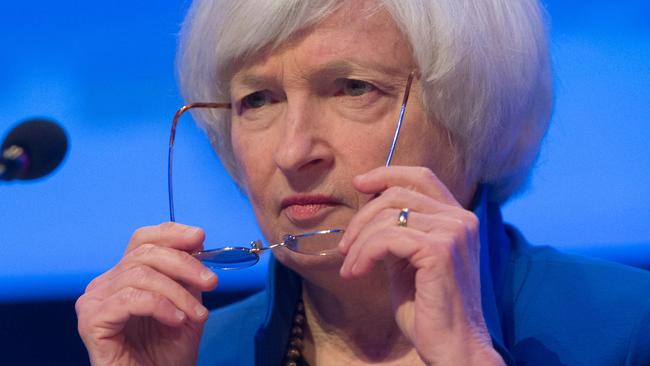
AFP
4.45am: ECB warns against ‘abrupt’ end to pandemic aid
The European Central Bank warned that a premature withdrawal of government support to the eurozone’s pandemic-hit economies could derail the recovery and trigger a wave of bankruptcies.
An “abrupt” end to the measures could “result in a more severe economic contraction than during the first wave of the pandemic,” the ECB said in its twice-yearly financial stability report.
Eurozone governments have taken unprecedented steps to shield companies and workers from the pandemic fallout, including through guarantees on bank loans and repayment moratoriums, massive short-time working schemes and aid for businesses hit by shutdowns.
Despite recent optimism about COVID-19 vaccines, “there is a long road ahead,” ECB vice president Luis de Guindos said in a statement.
“Authorities will have to make difficult decisions on whether and how to extend policy measures and, eventually, deal with the debt they create,” he said.
If fiscal support is not maintained for the full length of the crisis, firms most affected by social distancing restrictions “may face severe solvency issues or a more permanent disruption to their business models”, even as other sections of the economy recover, according to the ECB report.
Concerns over a slew of bankruptcies are already high due to the levels of debt incurred by companies and households during the first wave of the pandemic.
ECB President Christine Lagarde has previously said her biggest concern was governments creating a “cliff effect” by taking away fiscal support before a full-fledged recovery was under way.
However, while government support schemes continue to be essential, they should “remain targeted towards pandemic-related economic support and avoid giving rise to debt sustainability concerns in the medium term,” De Guindos said.
The ECB has said that its own pandemic stimulus package, which includes a 1.35-trillion-euro emergency bond-buying scheme ($US1.6 trillion) to help keep credit flowing, will continue until the “crisis phase is over”.
AFP




To join the conversation, please log in. Don't have an account? Register
Join the conversation, you are commenting as Logout